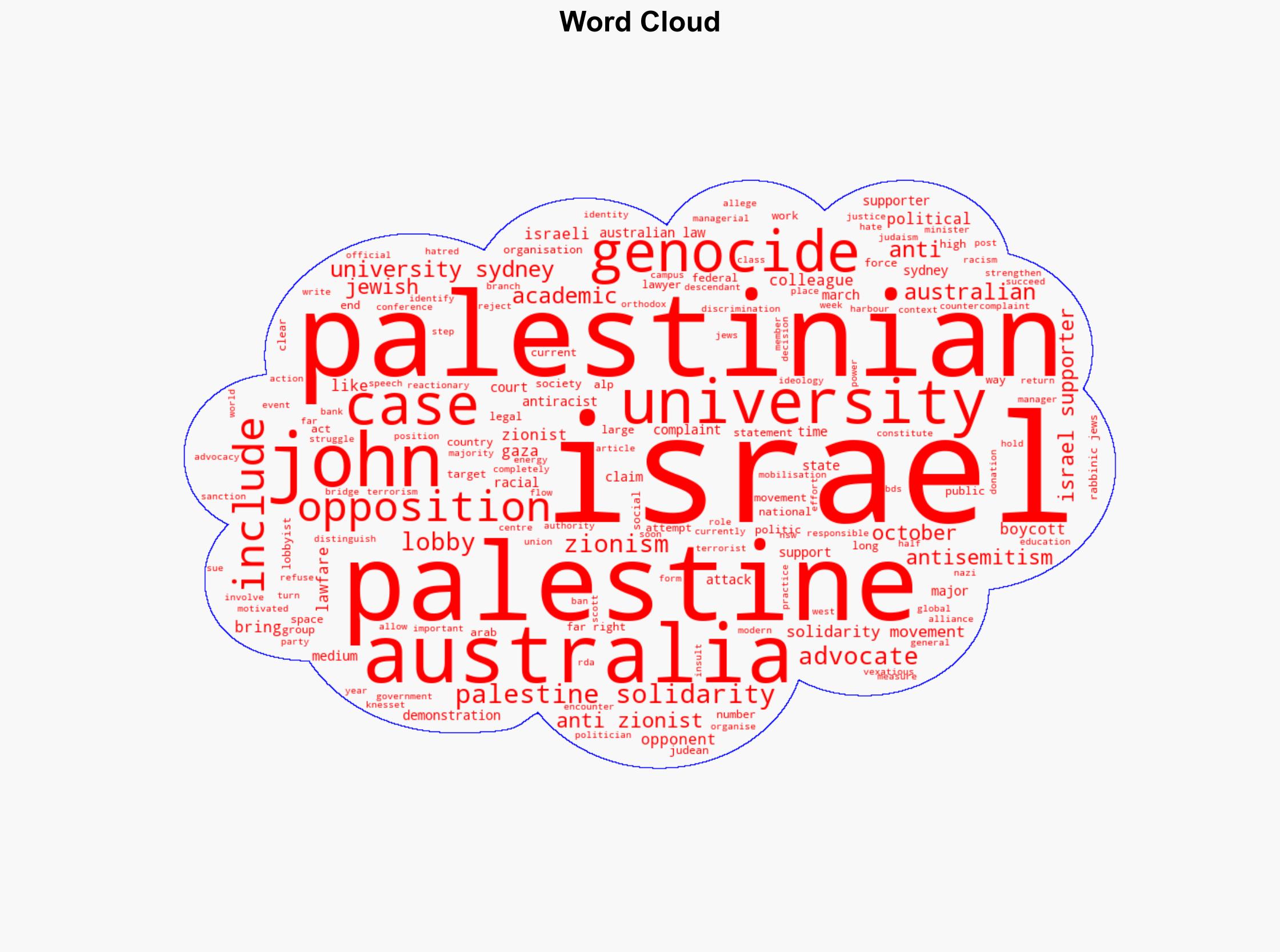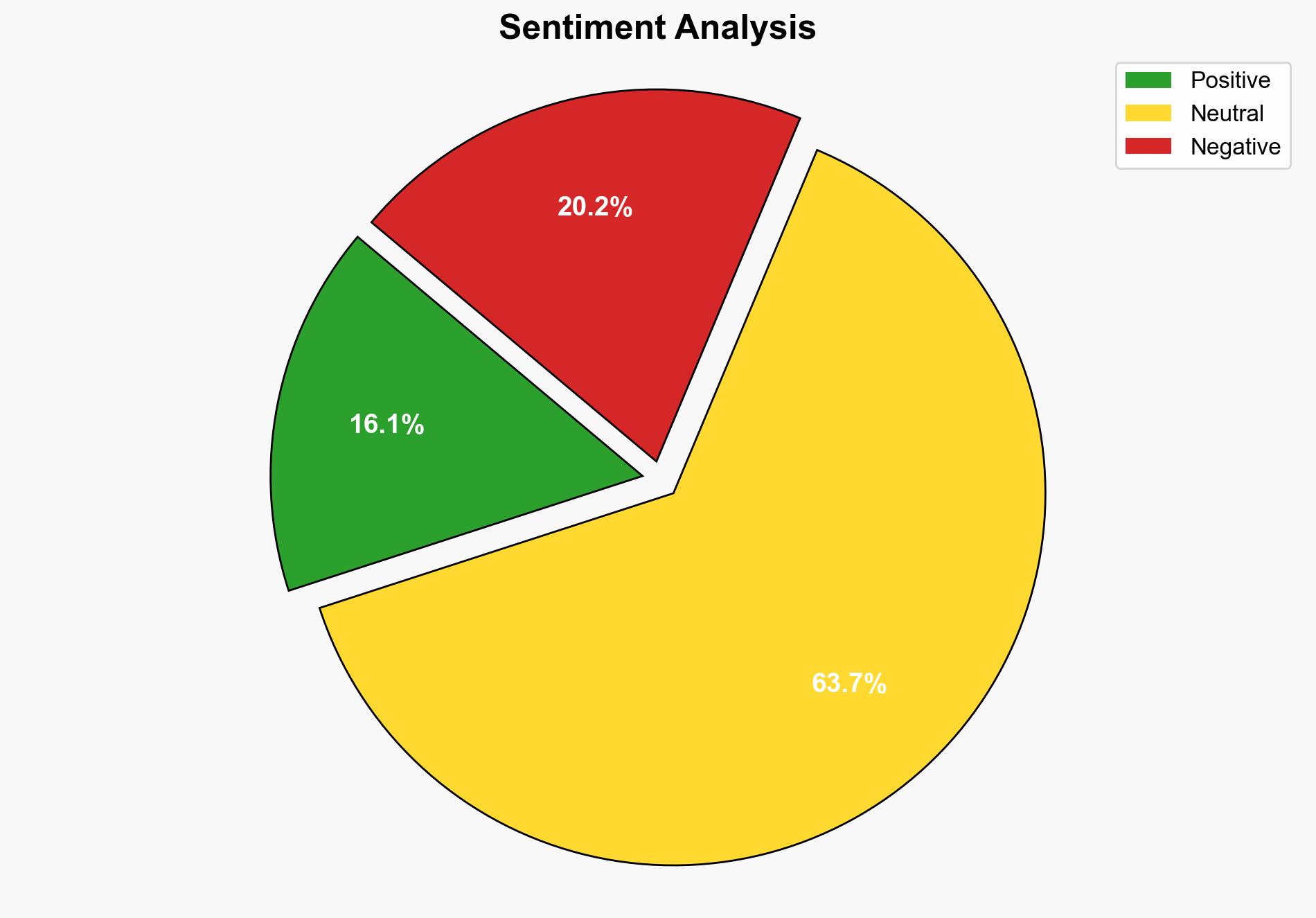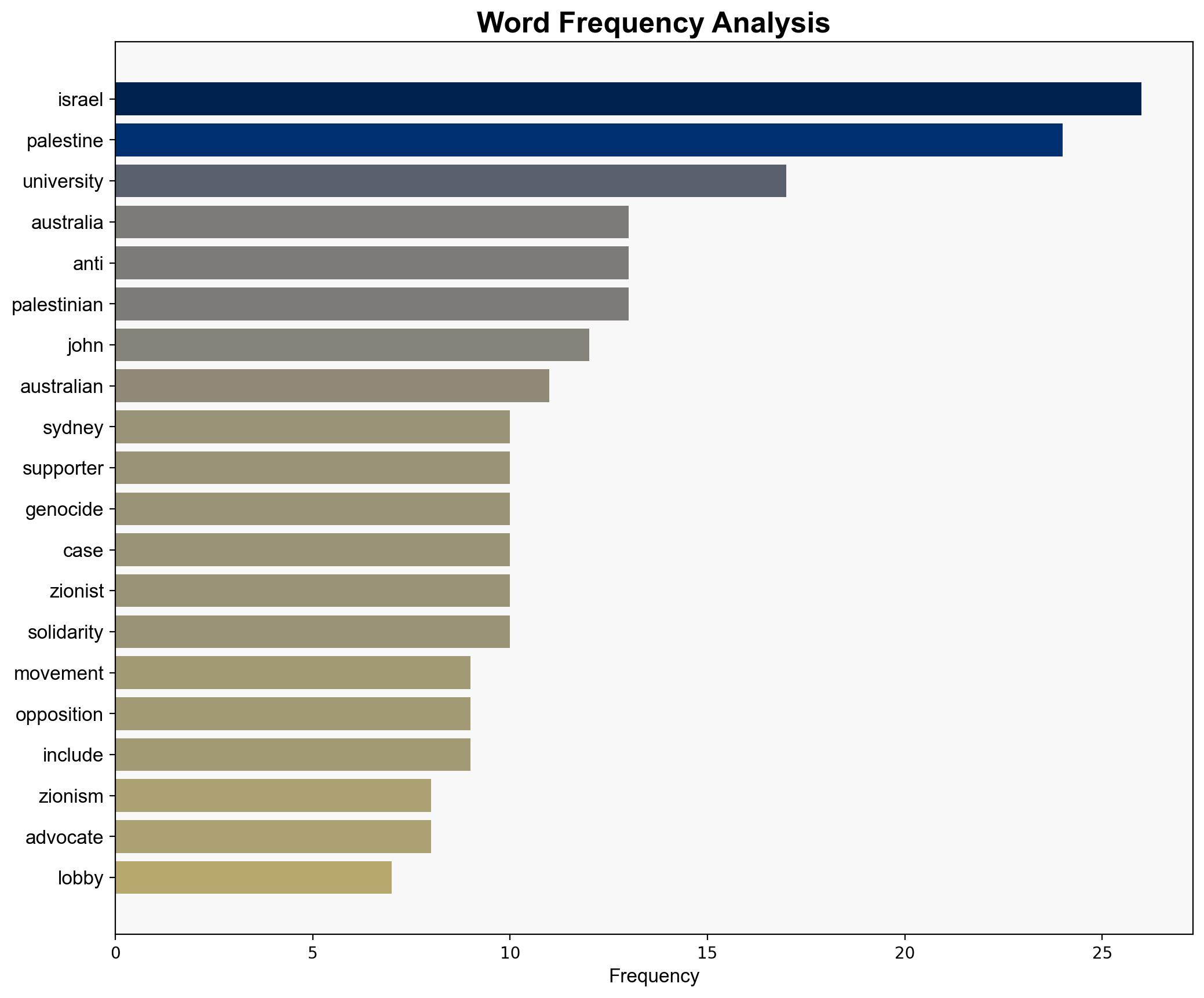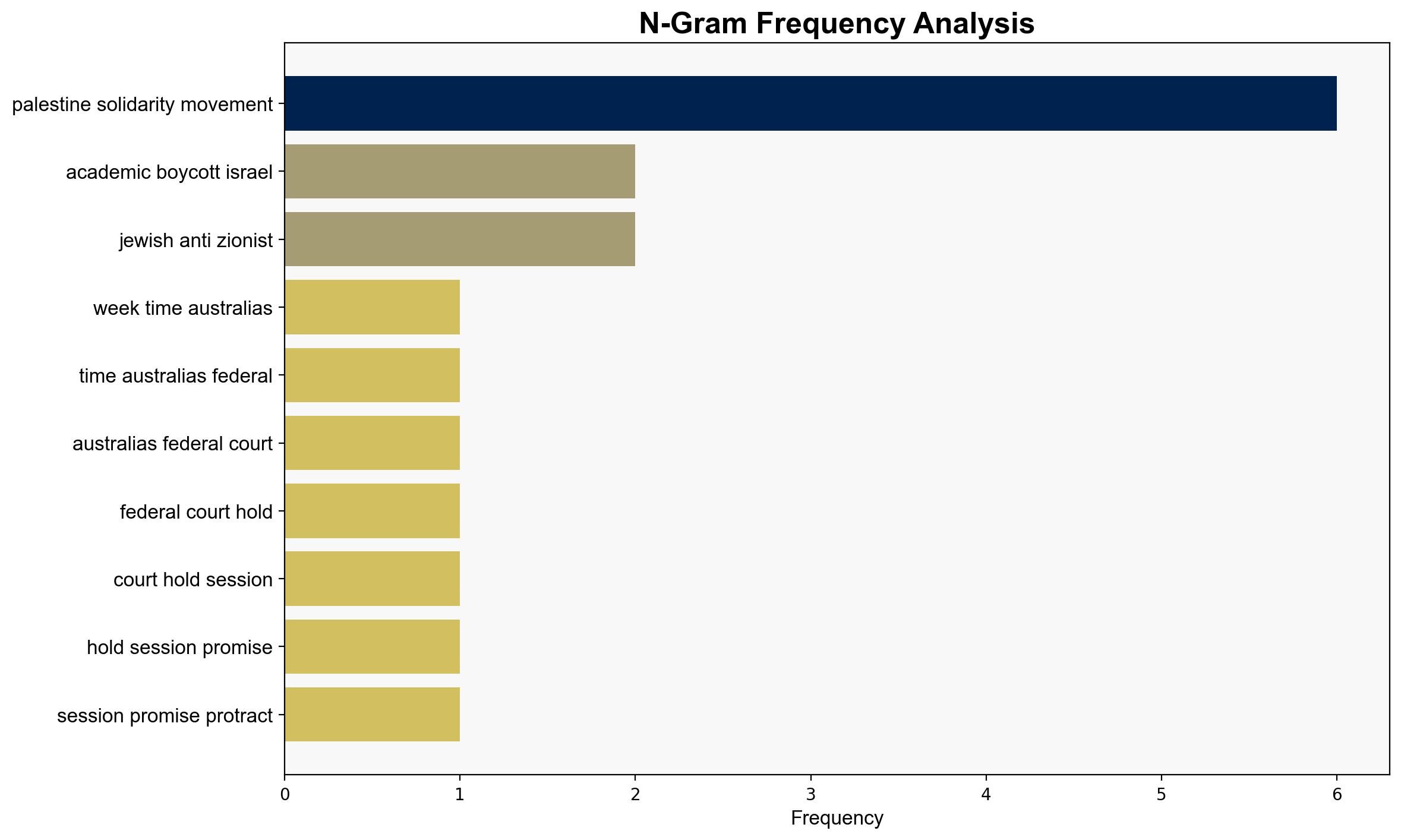Will Australian courts outlaw anti-Zionism – Mondoweiss
Published on: 2025-09-28
Intelligence Report: Will Australian courts outlaw anti-Zionism – Mondoweiss
1. BLUF (Bottom Line Up Front)
The most supported hypothesis is that Australian courts will not categorically outlaw anti-Zionism as hate speech. This conclusion is based on the complexity of legal definitions and the potential for significant backlash against restricting political expression. Confidence level: Moderate. Recommended action: Monitor the legal proceedings and public reaction closely to anticipate shifts in policy or public sentiment.
2. Competing Hypotheses
1. **Hypothesis A**: Australian courts will rule that anti-Zionism constitutes hate speech, aligning with the IHRA definition of antisemitism. This would lead to legal repercussions for anti-Zionist expressions.
2. **Hypothesis B**: Australian courts will not equate anti-Zionism with hate speech, maintaining a distinction between political criticism and racial hatred. This would preserve current free speech protections.
Using the Analysis of Competing Hypotheses (ACH) 2.0, Hypothesis B is better supported due to the lack of precedent for such a broad interpretation of hate speech laws and the potential for significant public and academic opposition.
3. Key Assumptions and Red Flags
– **Assumptions**: It is assumed that the court’s decision will be influenced by existing legal precedents and public opinion. Another assumption is that the IHRA definition will be a central point of reference in the court’s deliberations.
– **Red Flags**: The potential for bias in interpreting anti-Zionism as antisemitism without clear legal definitions. The possibility of political pressure influencing judicial outcomes.
– **Blind Spots**: The broader international context of anti-Zionism and its legal interpretations in other jurisdictions.
4. Implications and Strategic Risks
– **Legal and Political Risks**: A ruling equating anti-Zionism with hate speech could lead to increased legal actions against individuals and organizations, potentially stifling political discourse.
– **Geopolitical Risks**: Such a decision might strain Australia’s relations with Middle Eastern countries and impact its standing in international human rights forums.
– **Social Risks**: Potential escalation of tensions within academic and activist communities, leading to protests and further polarization.
5. Recommendations and Outlook
- **Mitigation**: Engage with legal experts to prepare for potential changes in hate speech legislation. Develop communication strategies to address public concerns.
- **Opportunities**: Leverage the debate to foster dialogue on free speech and antisemitism, promoting a balanced approach to these issues.
- **Scenario Projections**:
– **Best Case**: Courts uphold free speech protections, leading to a reaffirmation of democratic values.
– **Worst Case**: A broad ruling against anti-Zionism sparks widespread legal challenges and societal unrest.
– **Most Likely**: A nuanced decision that attempts to balance free speech with protections against hate speech.
6. Key Individuals and Entities
– John Keane: Academic involved in the case, known for his support of Palestine and criticism of Zionism.
– University of Sydney: Institution involved in the legal proceedings, with implications for academic freedom.
– IHRA: International body whose definition of antisemitism is central to the case.
7. Thematic Tags
national security threats, legal frameworks, freedom of speech, regional focus, antisemitism, academic freedom




